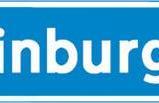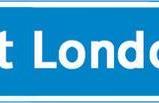More work queries answered by Robert Smith of recruitment consultant Hays Montrose. This month, going freelance and how to make a good impression
<B>Q: I am a site manager and am thinking of freelancing ã what are the advantages and disadvantages?</b><b>A:</b> One advantage is the increase in salary.
You are certain to earn more on contract than your counterpart who is on a permanent monthly wage.
The first step when deciding to go freelance is to make sure there is enough work. Industry recruitment agencies will often be the first to hear about new contracts and any large ongoing projects.
At the moment, the construction market is buoyant and most freelancers can enjoy continuity of work, although of course this can never be guaranteed, so you should be prepared for some periods when you might not have any work.
One of the disadvantages of freelance work is the lack of security: you may be about to start a contract and then at the last minute be told that you have been laid off.
Remember that once you go freelance you may lose out on certain benefits such as pension, car allowance or private health care. You may also lose out on holiday and sick pay entitlement, although the European Working Time Regulations have introduced four weeks' paid annual leave for contract workers once they have worked 13 weeks for the same agency. You are also entitled to sick pay after 13 weeks.
More and more people are setting themselves up as limited companies. If you decide to do this, you will probably earn more per hour than someone who is working through an agency, but remember, that is mainly because you will be responsible for paying all your tax and National Insurance contributions. To find out more about setting up as a limited company visit www.companies-house.gov.uk and www.haysworks.com.
So, market conditions are ideally suited to freelancing, but make sure you weigh up all the pros and cons before leaving permanent employment. You must discipline yourself and your finances so that you don't leave yourself short when you are on holiday or when your contract comes to an end.
<B>Q: I am a QS and about to start a job with a major firm. How do I make a good impression on the first day?</b><b>A:</b> Be on time. Try to arrive 10 or 15 minutes early. Dress to suit your working environment.
If you are working on site, make sure you are kitted out appropriately: hard hat, boots, jacket and high-visibility vest. If you are office-based and are not sure about the dress code, wear a suit and tie.
Ask questions. Don't worry that you might get on people's nerves. People would rather be asked questions than let you make a mistake. Write down your colleagues' names and the answers to any queries so you don't have to ask twice.
Plan your day. Write a list of the tasks you need to complete. This will aid your productivity and enable you to keep calm under pressure.
Make yourself available for extracurricular activities ã as anyone can tell you, a drink after work is the surest way of breaking the ice.
ãYou must discipline yourself so you donãt leave yourself short when you are on holiday or your contract endsã |
Postscript
If you have a question for Robert about your career, email sam.philpott@hays-montrose.com





























